- Home
- Anne Mather
Pale Dawn Dark Sunset Page 13
Pale Dawn Dark Sunset Read online
Page 13
Miranda almost gasped. “Well, I—I suppose he could be.”
Lucy scuffed her toe, almost completely calm again now. “That’s good,” she said absently. “I should like a pet.”
Miranda, who had never dreamed a breakthrough could be made so easily, was tempted to promise Lucy that she could have half a dozen assorted pets if she would agree to come back to England. But she didn’t. Bribery was no better a basis for a beginning than brute force would have been, and besides, she was beginning to think that perhaps Rafael was right after all. She had been trying to rush things. If she could just give Lucy a little more time, she might achieve everything. And in her heart of hearts she knew that the finality of leaving the valley—and Rafael—was something she didn’t want to have to face just yet…
Lucy asked if she could take the photograph of herself and Fluffy back to the monastery to show Father Esteban. Miranda agreed, of course, and was half relieved that the little girl did not see Juan before leaving. She would have hated for him to scoff at her small triumph.
The rest of the afternoon Miranda spent in her room. From time to time she heard the sound of voices on the patio, but they were too far away for her to distinguish who was speaking. She wondered if Rafael might be invited for dinner as they had guests, but although the prospect of seeing him again filled her with trepidation she was disappointed when Iñez came to inform her that she was expected to have dinner in her room. However, Constancia appeared in the early evening and she dispelled Miranda’s doubts on that score.
“Mama is most angry with Rafael,” she remarked, doing as Lucy had done and examining the various jars and bottles on the vanity unit. “Twice he has been to the hacienda without attempting to speak with her, and this afternoon, when she sent Diaz with a message inviting him to join us for dinner this evening, he sent a reply that it was impossible!”
Miranda linked her fingers together. “So—he is not coming?”
“No. Mama has asked Father Domenico to join us once more. He seldom refuses.”
“I see.”
Constancia moved impatiently about the room, small and slender in her gown of turquoise silk. Then she halted abruptly and said: “Tell me, señorita, did Rafael really save your life this morning?”
Miranda flushed. “Not—not really.”
“But he did pull you out of the lake, verdad?”
“I suppose so.”
Constancia shook her head. “Mama was most angry about that, also. You see, Rafael, he has always—avoided such situations.”
Miranda stared at her, willing her to go on and explain that remark. But Constancia, like Carla, seemed to think that what she had said was explanation enough. With a sigh, the Mexican girl walked towards the door.
“Did you have any success with the niña?” she enquired, in parting.
Miranda hesitated. “A—a little.”
Constancia lingered. “Qué?”
“I—I showed her some photographs. She recognised a kitten—a small cat—a pet she used to have in England.”
“Asi?” Constancia sounded impressed. “Was that all she remembered?”
Miranda nodded. “I’m afraid so.”
“No obstante, it is a beginning.” Constancia smiled. “I will tell Juan the good news.”
“No! That is—I’d rather you didn’t,” Miranda finished lamely. “Let—let Lucy tell him herself.”
“A fondo.” Constancia struggled. “I will say nothing.” She glanced at the slim gold watch on her wrist. “Se hace tarde. I must go. Adios, señorita—until tomorrow.”
But later that night, Miranda lay sleepless between the silken sheets of the luxurious bed. It had been such an eventful day, the most eventful day since her arrival here, and she was finding it impossible to empty her mind of the images that plagued it.
Her minor success with Lucy was important, of course. A beginning had been made, as Constancia had said, and it was possible that now a crack had appeared it might widen into full awareness of her identity. But it was not her success with Lucy which was driving away the waves of Morpheus.
Time and again she relived those moments on the shore of the lake when Rafael had looked down into her eyes and allowed naked passion to darken his. What had happened? Surely she had not been mistaken in thinking that for a few seconds at least he had desired her—had become aware of her body and been unable to suppress the urgent needs of his own…
A shudder passed through her, and she sat up in bed, pressing her updrawn knees to her stomach. He had been so angry afterwards, so furious and contemptuous, not just with her but with himself. But why? Surely what had happened had been a natural enough occurrence. She was not naïve enough to imagine that every time a man showed his attraction for a woman it involved any emotional commitment on his behalf. And just because she was becoming emotionally involved with him it did not necessarily generate any similar involvement on his part…
She slid out of bed, wrapping her robe about her, and opened the balcony doors. Outside the air was cool and sweet, a faint breeze carrying the sounds of the tumbling river up to her. Down the valley there were no lights, nothing to be seen but the shadowy darkness splashed here and there with the ghostly pallor of colour-washed walls. And somewhere down there was Rafael’s house. Was he sleeping, was he relaxing on some narrow bunk? Or was he, like her, troubled by uneasy thoughts? She doubted the latter. His life was too full, so absorbing for him to expend his energies in worry about an incident which he had no doubt forgotten by now.
With a heavy heart she closed the doors and turned back to the bed. As she shed her gown she thought that tomorrow she must write a letter to David and explain that things were taking a little longer than she had expected. She would ask for an extra week to sort out her affairs. Surely he would permit her that…
The next morning, Miranda met Juan’s fiancée, Valentina Vargas.
The other girl was with Juan on the patio when Miranda came downstairs after taking breakfast in her room as usual. An older woman was there, too, and Miranda guessed they were being chaperoned by the girl’s mother.
Miranda was reluctant to join them. She had come in search of Juan with the intention of suggesting that perhaps Diaz might be permitted to drive her to the monastery to see Lucy, but as soon as he saw her hovering uncertainly just inside the french doors, Juan sprang to his feet and performed the introductions with something closely approaching relief. Miranda hazarded that he found it difficult to relax with his fiancée when her mother could hear every word they said and there was no fourth person to distract her attention.
All the same, Miranda had no desire to be used as a buffer between Juan and his future in-laws. However, without being rude she could not refuse to take one of the basketwoven chairs he offered and accept a cup of coffee. So she sat down rather gingerly and hoped that either Doña Isabella or Constancia, or even Carla, would appear to relieve her.
Both Señora Vargas and her daughter were typically Spanish in appearance and dress, and Miranda felt conspicuous in her white jeans and purple tee-shirt. But most of her clothes were of the casual variety and she had not expected to have to share coffee with two immaculately-clad strangers. Indeed, if she had thought about the Vargas family at all, she would have expected them to have left the previous evening. Although, she reflected, she might have known that visitors did not make fleeting calls in this mountainous area.
When coffee was served and Juan had resumed his seat again, Señora Vargas turned to her and said: “You are the aunt of the child we met yesterday, señorita?”
“Yes, that’s right.”
Miranda forced a smile, but there was no answering smile in either of the two magnolia-pale faces confronting her. The two faces were very much alike—both patrician in cast, both rather bland in expression—and framed by night-dark hair that formed a widow’s peak above smooth foreheads.
“And when do you propose to take the child back to England, señorita?” Señora Vargas continued.
Mira
nda glanced uncomfortably towards Juan. “As soon as possible, señora. I—things have been complicated by the fact that Lucy doesn’t remember anything.”
“So I understand from Doña Isabella.” Señora Vargas frowned, and then turned to Juan. “What I cannot understand is why the child should spend so much time here. Why, indeed, Señorita Lord is staying here.”
Miranda’s cheeks burned with embarrassment, but Juan came swiftly to her defence. “Señorita Lord is our guest, Doña Maria. Is our wish she stay here.”
Señora Vargas shook her head. “Surely the affair is that of the authorities, verdad?”
“I make it my affair, Doña Maria,” replied Juan firmly. “The niña she is—how you say?—delightful, no?”
“What Juan means, Mama, is that he is—fond of the child,” said Valentina, speaking for the first time since her introduction to Miranda.
Señora Vargas’s frown deepened. “Fond of the child?” she echoed. “What means this, Juan?”
Miranda sensed that Juan was getting into difficult waters as he nodded and said: “I am fond of her, si. I tell Valentina so.”
Señora Vargas gave an impatient ejaculation. “It is time perhaps, Juan, that you had children of your own to be—fond of.” There was a wealth of scorn in that single word.
Juan shrugged his stocky shoulders. “Is not harmful to care for the niña, Dona Maria. She is—vulnerable.”
“I think what—Don Juan is trying to convey is that before I came Lucy had no one,” ventured Miranda tentatively. “He’s been very kind to her, and she’s very fond of him, too.”
Señora Vargas turned cold eyes in her direction. “I think my future son-in-law is capable of making his position clear, gracias, señorita,” she said.
Miranda picked up her cup and swallowed some of the coffee. It was either that or say something she would no doubt regret later. All the same, she could find it in her heart to pity Juan if Valentina turned out anything like her mother in later years.
Señora Vargas returned her attention to Juan, but he spoke to Miranda before she could recommence the attack.
“You wish to see me, señorita?” he suggested politely.
Miranda put down her cup. “Well, yes. I—I wondered whether Diaz might run me over to the monastery this morning. As—as you have guests, señor.“ This latter consideration had only just occurred to her, but it helped to strengthen her suggestion, she thought.
It was Juan’s turn to look annoyed now. “Diaz will bring the niña to the hacienda por usual, señorita,” he essayed firmly.
“No!” Valentina’s fingers clasped his wrist. “You promised to take me riding, Juan. Let the señorita go to the monasterio, caro. It would be much more suitable.”
Miranda knew that Juan must be doing battle with himself—whether to follow his own inclinations and risk alienating his fiancée’s affections, or to fall in with Valentina’s wishes, thereby giving Miranda a free hand. It could not be an easy decision for him.
“Valentina is right, Juan,” Señora Vargas stated, with emphasis. “You two have had so little time to spend together. It is not seemly that this child—this intruder—should be allowed to interfere with your arrangements. Tell Señorita Lord she may go the monasterio. The sooner this situation is resolved the better.”
Juan was silent for a long moment and then he covered Valentina’s hand with his own. “Very well, amada. Señorita Lord shall go to the monasterio as she wishes. But she may bring the niña back for lunch, no?”
Valentina accepted the condition, but Miranda sensed that the other girl did so under protest. It made her realise that Lucy’s future here in the valley was not a realistic proposition, and that sooner or later Juan must be made to accept this. If he married Valentina there would be no place in the household for an orphaned English girl.
This knowledge strengthened Miranda’s determination to win Lucy’s affections all over again, and after the previous afternoon’s events, Lucy was more willing to accept her aunt as someone who, far from threatening her, had her wellbeing at heart.
They spent the morning in the grounds of the monastery, running about and playing ball games, and hiding in the old graveyard that clung to the hillside behind the crumbling walls. Diaz, who had returned to the hacienda after bringing Miranda to the monastery, did not appear at lunchtime and Father Esteban insisted that they join him for the simple meal. Over cornbread and fruit, washed down by more of the goat’s milk which Miranda had tried the day before, he and Miranda discussed the miraculous escape Lucy must have made. The old priest went over everything he had written in his letters to her, forgetting as the old are apt to do, that Miranda had heard it all before. Diaz eventually returned at four o’clock with a message that Lucy was not expected to visit the hacienda that day. Miranda drove away with him reluctantly, conscious of Lucy’s disappointed little face all the way back to the hacienda.
She encountered one of the twins in the hall. She thought at first it was Constancia and called out a greeting, but when the girl turned she saw it was Carla. The Mexican girl’s eyebrows rose at the grass-smeared appearance Miranda presented, and she commented languidly: “Have you been tumbling in the hay, señorita? You look—dishevelled.”
Miranda squashed an angry retort and replied: “I’ve been playing games with Lucy, señorita, and I don’t particularly care how I look.”
“Do you not, señorita? Why is that, I wonder? Because one of my brothers is engrossed with his so-beautiful fiancée, while the other is engrossed with—shall we say—other matters?”
Miranda walked towards the stairs. She would not enter into an argument with Carla. All the same, she longed to be able to ask her exactly what she meant by—other matters.
“Have you seen Rafael today?” queried Carla, as Miranda began to mount the stairs.
Miranda paused. “No.”
“No, I thought not.” Carla frowned. “No one seems to have seen Rafael since your unfortunate trip to the lake, verdad?”
Miranda’s lips parted. “Are you trying to say something, señorita?”
Carla shrugged, her expression one of assumed innocence. “What might I be trying to say, señorita?” she countered. “No, I am—concerned about my brother, that is all. But do not let me detain you. I am sure you are eager to—to make yourself presentable again.”
Miranda’s clenched fists betrayed her indignation, but biting her tongue, she continued on her way upstairs and didn’t realise until she expelled her breath in her room that she had been holding it.
As she bathed, however, certain of the things Carla had said came back to trouble her. Had no one seen Rafael since yesterday morning? She had half expected Carla to denounce the fact that Rafael had returned her shirt and jeans, but obviously he had not. She recalled the congestion he had said he had and his subsequent soaking in his efforts to rescue her. Surely if he was ill he would have sent some word to the hacienda, to his mother at least.
But would he? Recalling his independence, the way his mother had had to plead with him to ensure his company for dinner that evening several nights ago, Miranda doubted that he would worry her with his problems. But what if he was ill and alone in that stone house by the river? Who was there to care for him? Who would ensure that he had food to eat, and fresh sheets on his bed?
Miranda stood up and reached for the fluffy bath-sheet to wrap around her. Suddenly the luxury of her surroundings were distasteful to her. She ached with the desire to know whether Rafael was all right, whether she was exaggerating the importance of that racking cough he had had. Tomorrow, she told herself determinedly, as she rubbed herself dry. Tomorrow she would find out one way or the other. When Diaz took her to the monastery, as no doubt Señora Vargas would see he did, she would ask him to call at Rafael’s house first.
CHAPTER NINE
UNFORTUNATELY, Miranda did not go to the monastery next morning. Diaz had been despatched before any objections could be voiced and when Miranda went downstairs after brea
kfasting in her room she found Lucy already ensconced on Juan’s knee at the table on the patio, eating fresh melon from his plate. Neither Valentina nor her mother were about, but an older man Miranda had not seen before was seated at the opposite side of the table, laughing at Lucy’s antics. She suspected that this might be Valentina’s father, a supposition which was confirmed by Juan’s introduction.
“Will you not join us, señorita?” requested Señor Vargas smilingly, clearly not sharing his wife’s aversion for an unconventionally attired English girl.
Miranda hesitated, looking at Lucy. “I—well, thank you. But I didn’t expect to find you here, Lucy.”
Lucy, who had had to slide-off Juan’s knee while he performed the introductions, shrugged her small shoulders. “I knew Tio Juan would want to see me today,” she declared confidently. “I ‘spect Diaz made a mistake yesterday, didn’t he, Tio Juan?”
Juan looked down at her gently. “Let us say—a misunderstanding, chica. But no matter—you are here now, si?”
Lucy smiled up at him and Miranda sighed. Yesterday had been an unexpected concession. Today she would have to compete with Juan again, and Lucy was feminine enough to prefer the company of a male to that of a female.
Miranda accepted coffee and responded politely to Señor Vargas’s questions about her life in England. She admitted that, apart from Lucy, she was alone in the world, that she lived in a small flat in Chelsea, and that she was secretary to a merchant banker. Clearly her replies shocked the old hidalgo, but he managed not to show his concern at her lack of chaperonage too obviously.
It was Juan, when she told him that she had a letter which she wished despatching to England, who said: “Oiga, you are not leaving, señorita?” in horrified tones. Even Lucy looked up at this and Miranda was warmed by the anxiety in her eyes. But whether it was at the thought of her aunt’s departure or concern that she might be expected to go with her, Miranda could not be sure.
“No,” she answered now, shaking her head at Juan. “As—as a matter of fact, I’ve asked my employer for an extra week’s leave. Don Rafael said—that is, would you object to my staying a few more days, señor?”

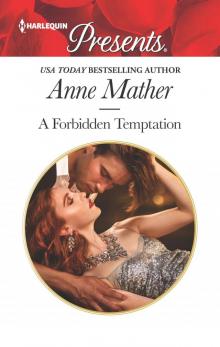 A Forbidden Temptation
A Forbidden Temptation Dark Castle
Dark Castle Hell Or High Water
Hell Or High Water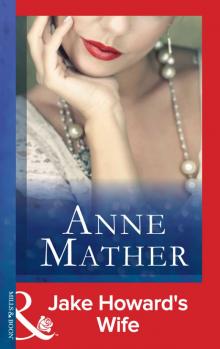 Jake Howard's Wife
Jake Howard's Wife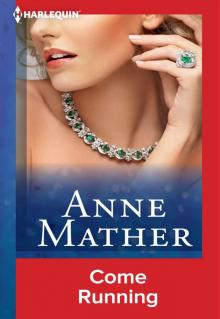 Come Running
Come Running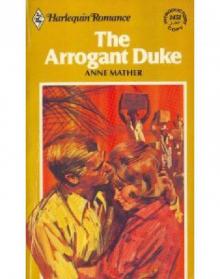 The Arrogant Duke
The Arrogant Duke Sweet Revenge
Sweet Revenge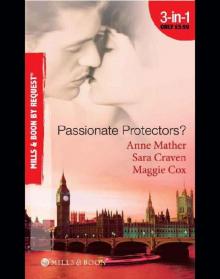 Passionate Protectors?
Passionate Protectors? Savage Awakening
Savage Awakening Come the Vintage
Come the Vintage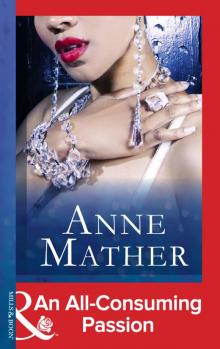 An All-Consuming Passion
An All-Consuming Passion A Fever In The Blood
A Fever In The Blood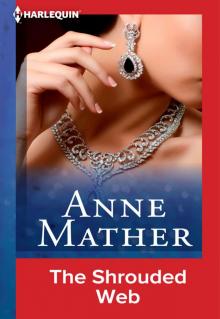 The Shrouded Web
The Shrouded Web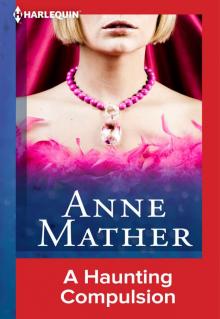 A Haunting Compulsion
A Haunting Compulsion Duelling Fire
Duelling Fire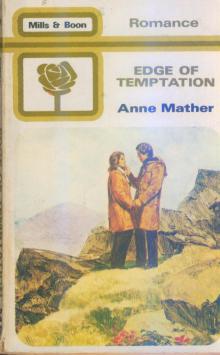 Edge of Temptation
Edge of Temptation Wild Enchantress
Wild Enchantress The Brazilian Millionaire's Love-Child
The Brazilian Millionaire's Love-Child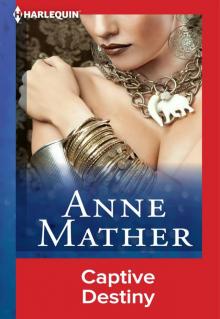 Captive Destiny
Captive Destiny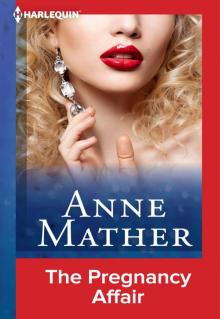 The Pregnancy Affair
The Pregnancy Affair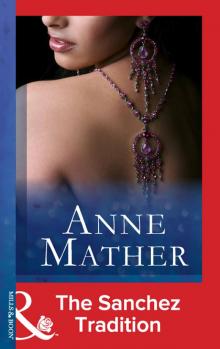 The Sanchez Tradition
The Sanchez Tradition A Passionate Affair
A Passionate Affair Sinful Truths
Sinful Truths Stay Through the Night
Stay Through the Night Seen by Candlelight
Seen by Candlelight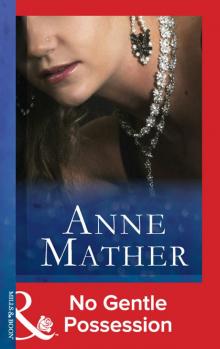 No Gentle Possession
No Gentle Possession His Forbidden Passion
His Forbidden Passion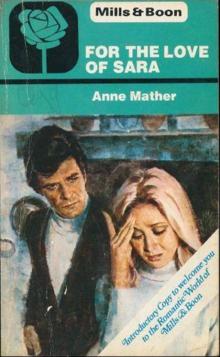 For the Love of Sara
For the Love of Sara A Trial Marriage
A Trial Marriage Melting Fire
Melting Fire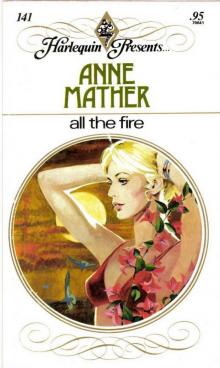 All The Fire
All The Fire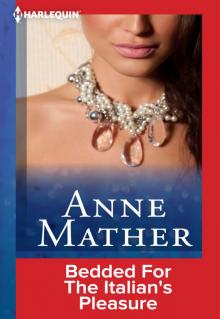 Bedded For the Italian's Pleasure
Bedded For the Italian's Pleasure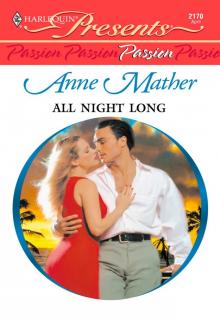 All Night Long
All Night Long The Japanese Screen
The Japanese Screen Rich as Sin
Rich as Sin Smokescreen
Smokescreen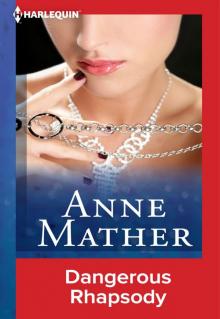 Dangerous Rhapsody
Dangerous Rhapsody Brittle Bondage
Brittle Bondage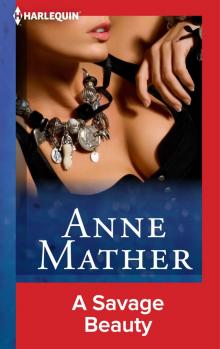 A Savage Beauty
A Savage Beauty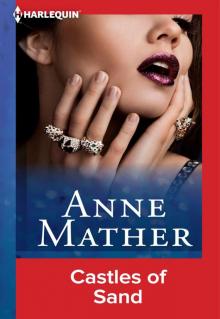 Castles of Sand
Castles of Sand A Distant Sound of Thunder
A Distant Sound of Thunder THE VIRGIN'S SEDUCTION
THE VIRGIN'S SEDUCTION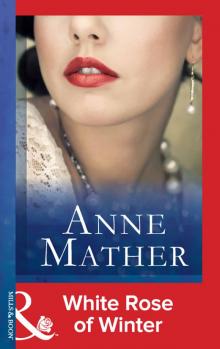 White Rose of Winter
White Rose of Winter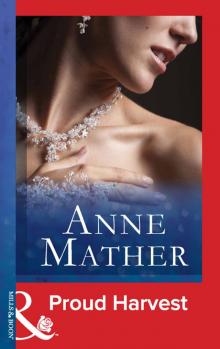 Proud Harvest
Proud Harvest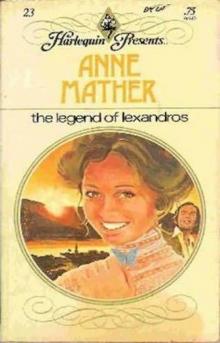 The Legend of Lexandros
The Legend of Lexandros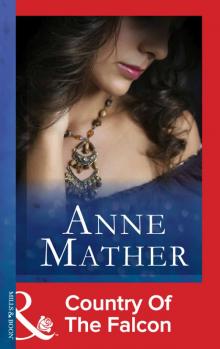 Country of the Falcon
Country of the Falcon Diamond Fire
Diamond Fire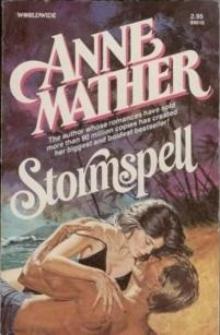 Stormspell
Stormspell Legacy of the Past
Legacy of the Past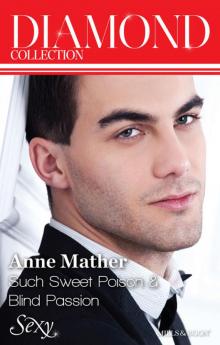 Such Sweet Poison/Blind Passion
Such Sweet Poison/Blind Passion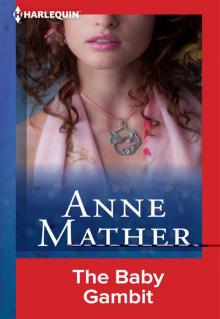 The Baby Gambit
The Baby Gambit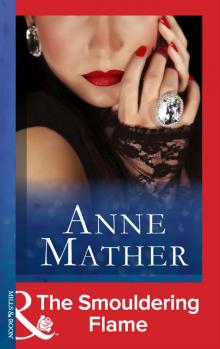 The Smouldering Flame
The Smouldering Flame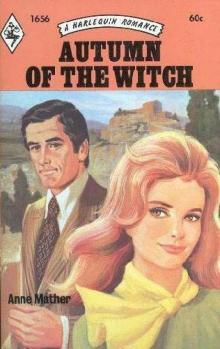 Autumn of the Witch
Autumn of the Witch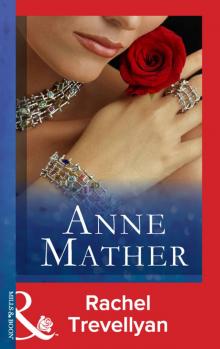 Rachel Trevellyan
Rachel Trevellyan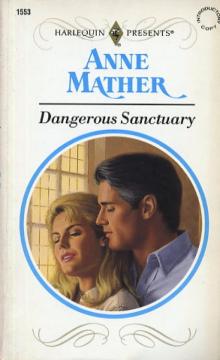 Dangerous Sanctuary
Dangerous Sanctuary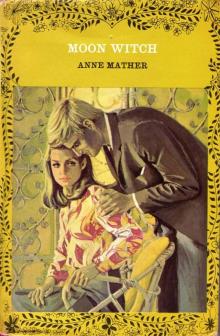 Moon Witch
Moon Witch An Heir Made in the Marriage Bed
An Heir Made in the Marriage Bed Images Of Love
Images Of Love Innocent Obsession
Innocent Obsession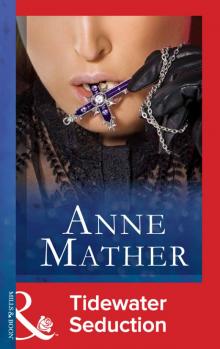 Tidewater Seduction
Tidewater Seduction Pacific Heat
Pacific Heat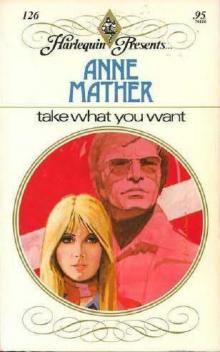 Take What You Want
Take What You Want The Spaniard's Seduction
The Spaniard's Seduction The High Valley
The High Valley A Woman of Passion
A Woman of Passion The Reluctant Governess
The Reluctant Governess Charade in Winter
Charade in Winter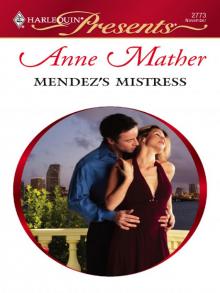 Mendez’s Mistress
Mendez’s Mistress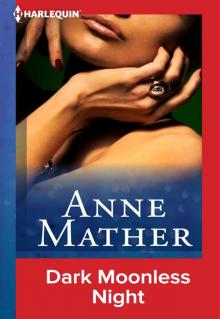 Dark Moonless Night
Dark Moonless Night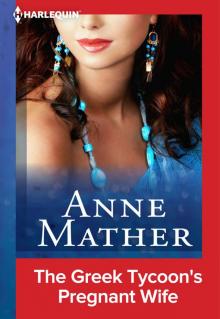 The Greek Tycoon's Pregnant Wife
The Greek Tycoon's Pregnant Wife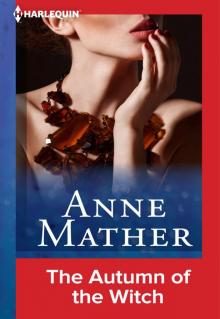 The Autumn of the Witch
The Autumn of the Witch Night Heat
Night Heat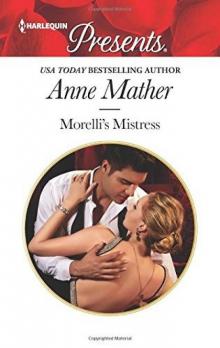 Morelli's Mistress (Harlequin Presents)
Morelli's Mistress (Harlequin Presents)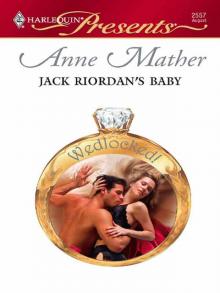 Jack Riordan's Baby
Jack Riordan's Baby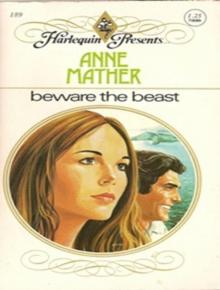 Beware the Beast
Beware the Beast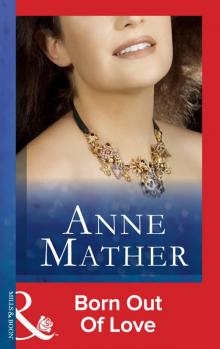 Born Out of Love
Born Out of Love Greek Affairs in his Bed: Sleeping with a StrangerBlackmailed into the Greek Tycoon’s BedBedded by the Greek Billionaire
Greek Affairs in his Bed: Sleeping with a StrangerBlackmailed into the Greek Tycoon’s BedBedded by the Greek Billionaire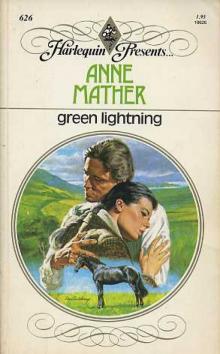 Green Lightning
Green Lightning Guilty
Guilty Snowfire
Snowfire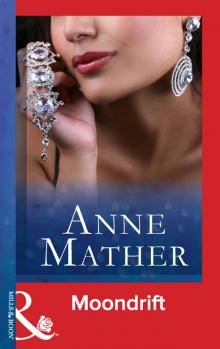 Moondrift
Moondrift Stolen Summer
Stolen Summer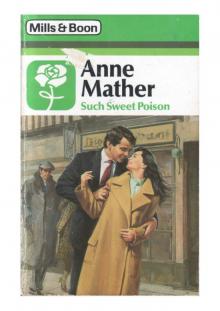 Such Sweet Poison
Such Sweet Poison Dark Venetian
Dark Venetian Innocent Sins
Innocent Sins Baby Out of the Blue
Baby Out of the Blue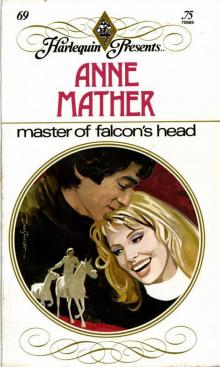 Master of Falcon's Head
Master of Falcon's Head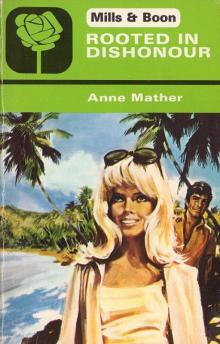 Rooted in Dishonour
Rooted in Dishonour A Secret Rebellion
A Secret Rebellion The Forbidden Mistress
The Forbidden Mistress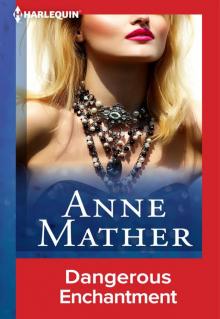 Dangerous Enchantment
Dangerous Enchantment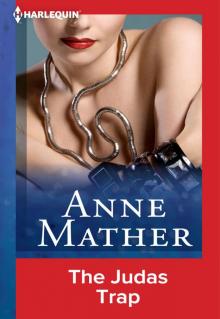 The Judas Trap
The Judas Trap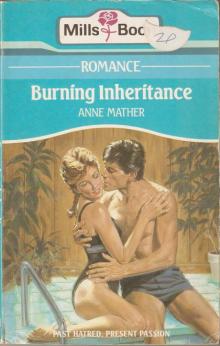 Burning Inheritance
Burning Inheritance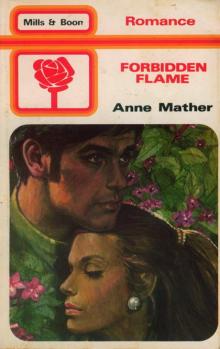 Forbidden Flame
Forbidden Flame Who Rides the Tiger
Who Rides the Tiger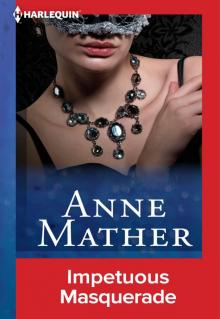 Impetuous Masquerade
Impetuous Masquerade Fallen Angel
Fallen Angel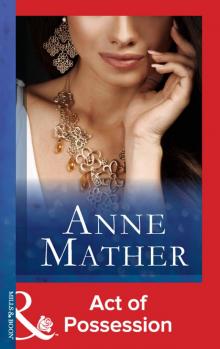 Act of Possession
Act of Possession Dangerous Temptation
Dangerous Temptation Pale Dawn Dark Sunset
Pale Dawn Dark Sunset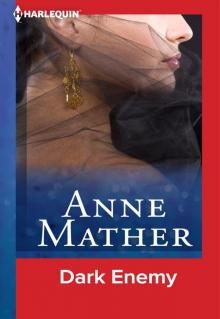 Dark Enemy
Dark Enemy Innocent Virgin, Wild Surrender
Innocent Virgin, Wild Surrender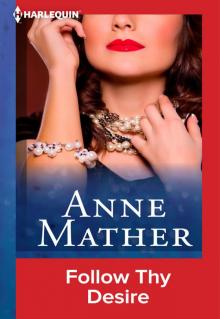 Follow Thy Desire
Follow Thy Desire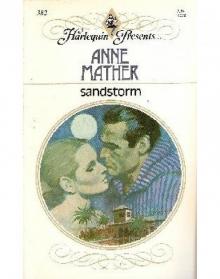 Sandstorm
Sandstorm Apollo's Seed
Apollo's Seed Whisper Of Darkness
Whisper Of Darkness A Wild Surrender
A Wild Surrender A Dangerous Taste of Passion
A Dangerous Taste of Passion The Night Of The Bulls
The Night Of The Bulls Hot Pursuit
Hot Pursuit The Longest Pleasure
The Longest Pleasure An Elusive Desire
An Elusive Desire Storm In A Rain Barrel
Storm In A Rain Barrel